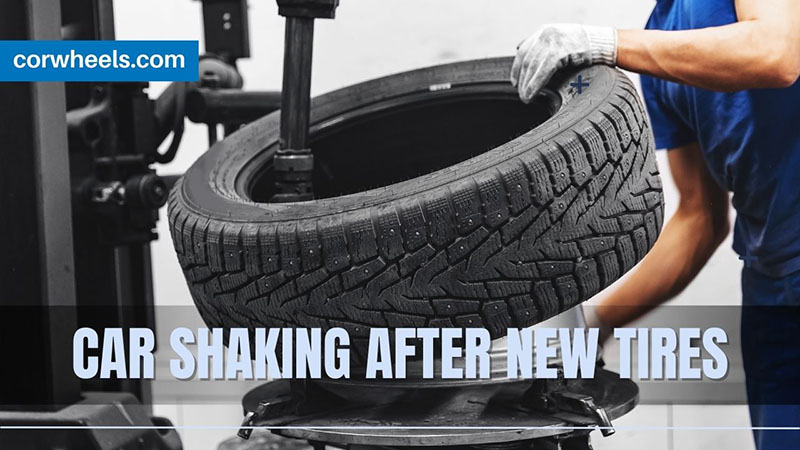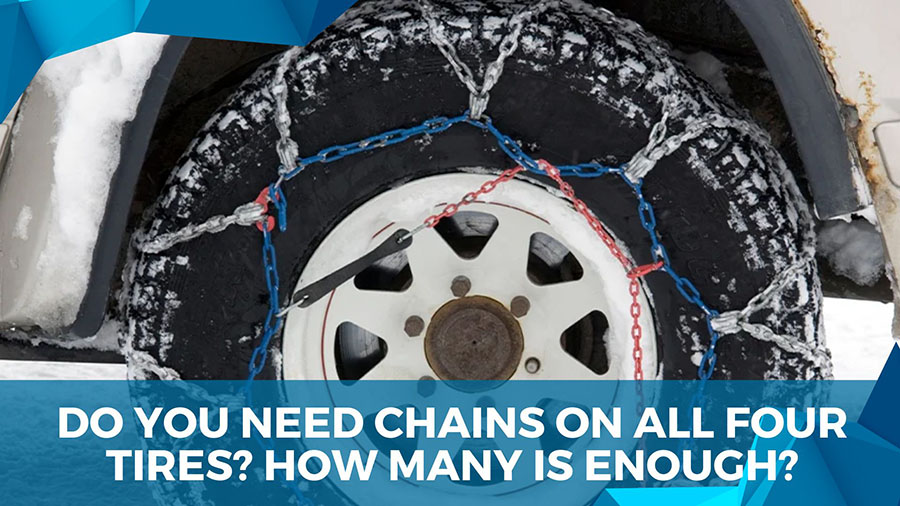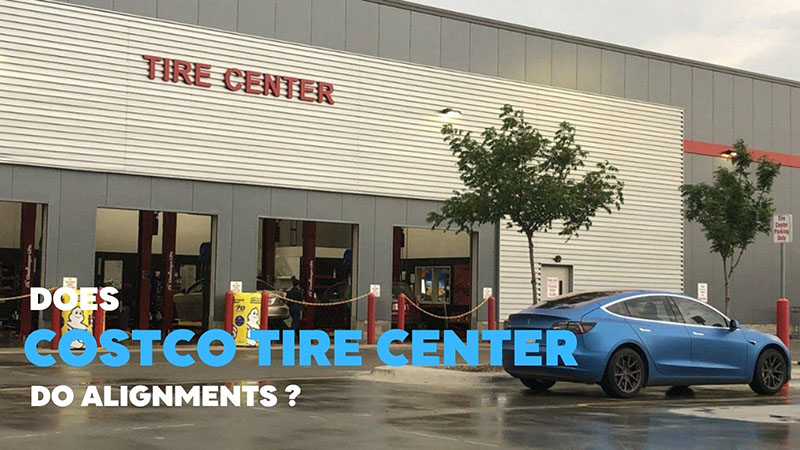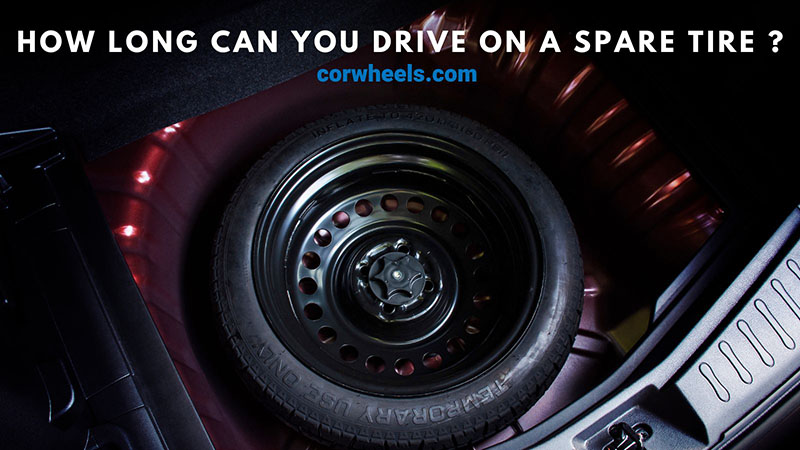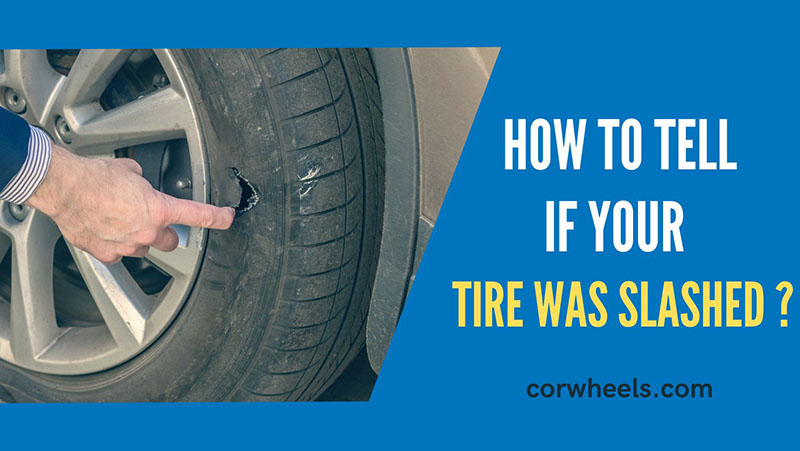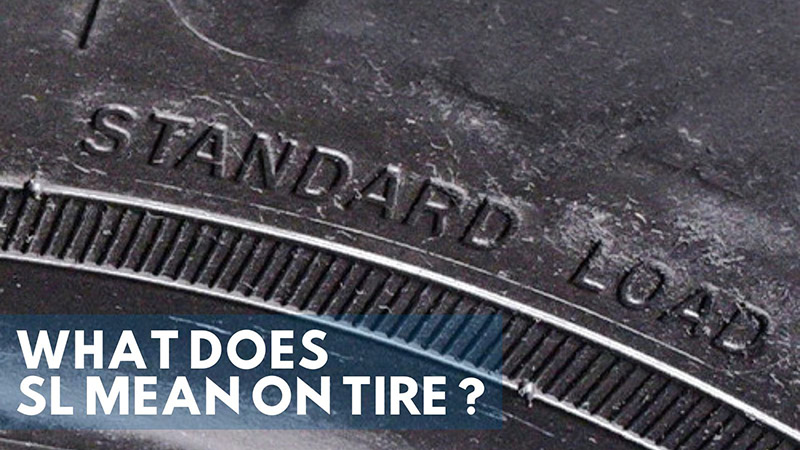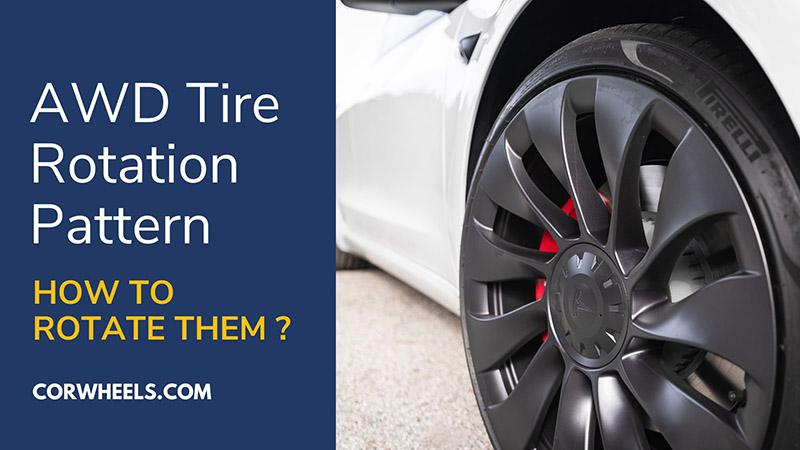Since tires will wear down over time, you will need to replace your tire set after a while of use to maintain a good driving experience. Still, it’s not as simple as you think to replace a tire, and something might always go wrong, such as the new tires shaking at highway speeds.
This article will walk you through everything you need to know about this common vehicle issue, from the causes to the solutions for it.
In this article:
What Causes Car Vibrating After New Tires?
Generally speaking, any problem with the rotating components can lead to vibration. Wheel balance or alignment issues or problems with rims, tires, and mounting are all at play.
Wheel Balance Issue
Unbalanced wheels are the most common source of your car shakes after new tires and alignments. As no tire product can be guaranteed to be flawless, vibration during travel is a recurring problem.
The tire balance will change, which is entirely common, as a result of having somewhat thicker or thinner zones. Therefore, tire manufacturers tend to perform various tire balancing procedures before fitting the vehicles with wheels.
Worn-Out/Bent Rims
The rim wears down more quickly the further you drive. Many drivers, however, disregard this aspect since they are unaware that damaged wheels would result in vibrations.
If your car develops this issue soon after getting new tires, carefully examine the rims to evaluate the degree of the damage. A minor dent in your car rim can lead to vibrations, giving you a bad driving experience.
Alignment Of The Wheels
Wheel alignment is always assisted by routine auto maintenance when a new set of tires is placed. However, a misaligned wheel axle that results from a lack of consolidation in the system can also generate vibration.
Drivers frequently attribute this situation to worn-out, damaged rims or worn-out tires, making diagnosis challenging. To ensure that all of the installation’s components are functional and secure, we advise doing a complete inspection.
Tire Issues
When your new tires shake at a high speed, the tires themselves might be the culprit. It’s sometimes unavoidable to purchase a defective tire, especially when they are inexpensive. This triggers the wheel to wobble. Even though these flaws are uncommon, they are nevertheless feasible.
Otherwise, the new tire might not be well-fitted for your car, or you can only replace one/two tires, ending up with uneven tread wear between four tires. All can be followed by excessive shaking.
Another problem you might encounter is your tire being over-inflated. These stretched tires can be much bouncier than normal, making even the smallest road imperfections noticeable. Check out CalRecycle’s post for more information on checking your tire pressure and maintaining it.
Improper Remounting
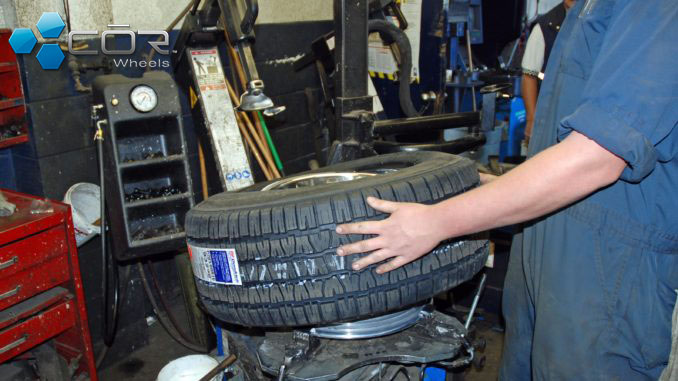
Suppose your new tires are balanced but still vibrating; the problem might lie in the tire technician. An amateur mechanic’s lack of competence might occasionally result in the installation of a loose wheel. This scenario is rare, but it is nonetheless possible if you have the misfortune of coming across a subpar tire store.
The main factor for tire vibration is loose or missing wheel nuts during incorrect remounting. The tightness of the fittings will have a direct impact on how violently the shaking occurs. Feel the nuts on your wheel and ensure that the bolt holes and nuts are lined up to see whether your car has this issue.
What To Do To Fix The Vibration Issues
Suppose your new tires feel wobbly after changing; it is preferable to return to the tire service or repair shop where the tire was replaced so the balance may be checked.
The greatest remedy for unbalanced tires is to insert small lead blocks into your rim. Most tire installation shops today use this technique since it is quite simple to execute.
In the unfortunate event that your rims sustain damage, you will need to replace them with new ones if the damage is too severe to restore to their previous condition. While aluminum rims will make them more challenging to repair, steel wheels are typically simple to fix.
If you have trouble with defective or deformed tires, swapping them out for brand-new ones is the only solution. Keep in mind to purchase high-quality tire products from reliable brands to minimize the chance of this problem occurring again. In case your wheels are overinflated, you can easily fix this problem by deflating them with a van.
Also, it is preferable to have modern automobiles with wheel alignment issues attended to at a reliable tire shop. The experienced tire technician will assist you in carefully checking and aligning the wheel.
Frequently Asked Questions
Is It Normal For A Car To Vibrate Slightly After New Tires?
Yes. Because the transmission gears, crankshaft, and other moving components in your engine rotate when you drive, it is common and normal for your automobile to vibrate a little bit. Still, if you notice the shaking quite intense, it is time to look into the causes.
Is It Safe To Drive A Vibrating Car?
No. Tire trembling makes for a bumpy ride, compromises other vehicle parts, and poses a safety risk. To be more precise, the shaking will interfere with the driver’s focus, making it simple for the car to skid or slide out of control.
Also, constant vehicle vibration will have a negative impact on other wheel parts, lead to uneven tire wear, and harm your car interior.
How Long Does It Take For My New Tires To Settle In?
Typically, a fresh set of tires need to be broken in for about 500 miles before functioning at their best. We advise avoiding heavy braking, accelerating more gradually, and turning slightly more slowly than usual.
The Bottom Line
That the car or the steering wheel shakes after new tires is not rare, and it can be quite a headache to deal with. Even so, you can properly resolve the issue if you are fully informed on the root of the problem and how to remedy it.
Also, keep in mind not to ignore this vibration problem since it won’t go away by itself. Once you notice something is wrong with your beloved vehicle, bringing it to a trustworthy auto shop and letting the certified mechanic handle the rest is the best move.
View more: New tire keep losing air, but no leak found

